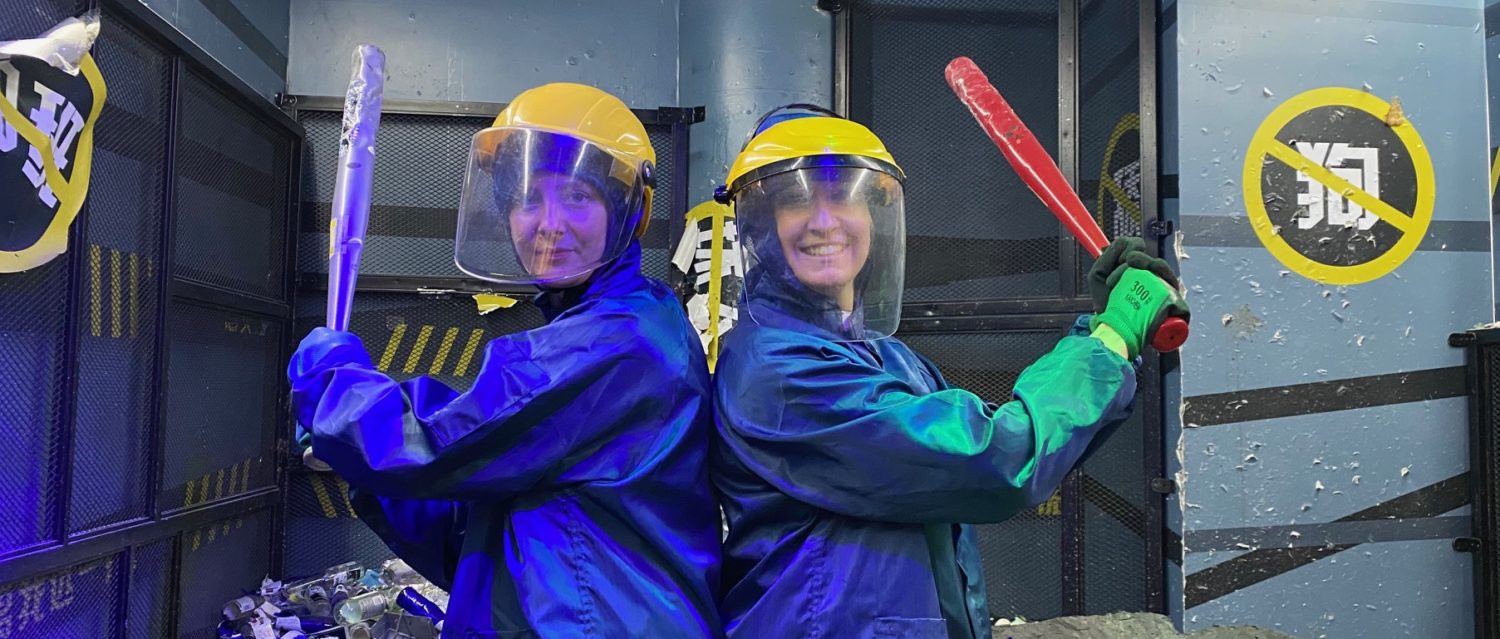In the extreme, self-isolation is staying inside and completely avoiding contact with other people. However, for a family, ‘self-isolation’ looks very different. Especially when a family member must leave the house to go to work, and you still have to go to the grocery store.
My family and I have lived in China for over 3 years, and we have been self-isolating since January after learning of the Covid-19 outbreak. Based on the information we have learned over the past few months, I will explain what steps we are taking to protect ourselves and how to self-isolate.
Your Home is Your Safe Zone
To keep it that way, only those people who live in your house should be allowed inside.
Any shoes worn outside in public areas should remain outside your home. Since moving to China, we have adopted the ‘shoes off at the door’ rule, however, since the outbreak all shoes are kept outside the door to ensure we don’t inadvertently track the virus into the apartment.
In addition to your regular cleaning practices use an antibacterial cleaner (Dettol or the like) to wipe doors, handles, light switches, benchtops and countertops and to mop the floors. Other high touch objects that need regular cleaning are;
- mobile phones
- house/car keys
- remote controls
- computer keyboards
We do this every few days, depending on the number of times we’ve left the house. The more often you go in and out of the house, the more often you will need to do this.
Whenever you leave the house, ensure you take tissues. We use tissues to press elevator and ATM buttons, when using shopping trolleys or baskets, pumping petrol/gas, opening car doors and to protect our hands from anything else we may need to pick up.
Wash your hands thoroughly if you come into contact with anyone, or anything someone else may have touched. Including shopping trolley’s and baskets, after handing your ATM card to a cashier and using an EFTPOS machine, or handling cash and coins. This is extremely important as the virus can live on some surfaces for days. (In China, money deposited into the bank is now sterilised under UV lights, remaining out of circulation for days.)
When returning home, take your shoes off before heading directly to the bathroom to wash your hands and to disinfect your mobile phone. Do not touch anything on the way.
Make every effort when outside your home/or before washing your hands, not to touch your face, mouth or eyes. This is extremely important as the virus is highly contagious and can be transmitted this way.
These are all ways you can ensure you, your family and your ‘safe zone’ remain safe.
Working Outside the Home
For those unable to work from home, ensure your workplace is as safe as possible and practice social distancing.
After the outbreak of the epidemic, we considered Steve’s workplace to be an extremely high-risk work environment. With all the guests and travellers he was coming in to contact with each day there was no way of knowing if he had been exposed to the virus and inadvertently bring it home to us. We had to consider the option of him staying in the hotel so he wouldn’t have to come home and put Olivia and I at risk.
However, after the hotel put strict measures in place, we decided it would be safe for him to stay at home. The steps taken are as follows;
- Every person entering the building has their temperature taken before they are allowed in to ensure they do not have a fever. (A temperature above 37.3 degrees celsius is considered fever during this epidemic). Staff and guest’s temperatures are measured again before entering common areas of the hotel, such as the main restaurant. (The other restaurants, bars, spa, gym and meeting rooms were all closed down)
- Hand Sanitiser stations are placed in high traffic areas. Guests and staff are required to use the sanitiser before entering the restaurants
- Lifts, lift buttons, handrails and counters are cleaned with antibacterial agents continuously throughout the day.· Tables in the restaurants are separated, so groups of people can’t sit together.
- Tables in the staff cafe are now separated with only one chair per table ensuring no-one is able to sit together.
- All staff meals are now prepackaged, and only one staff member stands at the counter to oversee the distribution of the meals.
- All staff members wear masks.
Only after these measures were implemented in the hotel did we feel safe enough for Steve to come home to us each night.
Each night he returns home and goes straight to the bathroom to shower and ‘decontaminate’.
The measures taken will be very different in every workplace. It will depend on how customer-facing your job is, how many work colleagues you come into contact with each day and how your office is arranged.
Think about how you can distance yourself from your colleagues and customers. Do you need to be sitting in an enclosed meeting room together or can you have a phone hook-up instead? Can you rearrange your desk so you aren’t facing someone within a meter or two of you?
What are the high touch areas in your office? Door handles, bathrooms, photocopiers, coffee makers, microwaves, kitchen taps, lifts, escalators, phones etc.
Ensure there are systems in place to have these high touch areas disinfected throughout the day.
Catching Public Transport
Steve catching the metro to and from work each day poses a risk for us. To ensure he is on the train for as little time as possible, he runs/walks as far as he can before having to get on at another metro stop further from home but closer to work. He stands at all times, never holds on or touches anything, and moves away from other people if they get on the train.
When catching a taxi, or an Uber, we keep the windows open to ensure there is maximum air-flow. (If at all possible, avoid confined spaces without air-flow)
Grocery Shopping
If you can, order your groceries online for delivery.
If you have to go to the store, consider taking your own pull-trolley. When using a trolley, use antibacterial wipes to wipe down the handle, or use tissues so as not to touch the handles.
I know it is very hard to get hold of these items, but if you have hand sanitiser, alcohol wipes or masks, use them. These are not essential, but the more protection you can use the better.
Staying Active While Isolating
At home, if you have a backyard or a front yard that’s great. Get outside in the sun, do some gardening, exercises, relax or play with the kids to keep active.
We live in an apartment, so we go for long walks in the streets, ensuring we don’t walk or stand too close to anyone, or touch anything. We let Olivia ride her bike or scooter when we are out, so there is no need for her to touch anything along the way. All the parks and play areas in Shanghai were closed or roped off months ago. The workforce it would take to ensure these public spaces are sterilised regularly is not available and therefore unsafe for people to use.
Adjust Your Mindset
I know this all sounds extreme, but to protect ourselves we had to adjust our mindset and consider that anyone we come into contact with may be infected. Even if they aren’t showing symptoms and say they are feeling fine, they may still be infected and not know it yet. It can take up to 14 days (some reports say up to 21 days) for someone infected with Covid 19 to show symptoms. Once you get into this mindset, it is much easier to come to terms with the reason for self-isolation.
Take Control
You can control who you, and your immediate family, come in contact with by staying at home. You cannot control who, or what, others have come into contact with, and this is where you need to seriously consider whether it is safe to spend time with friends or send your kids along on play dates. If you know someone has quarantined themselves for 14 days without any outside contact, this is the only time you should consider spending time with them.
Remember, this is not forever. It is only for the next few months until the epidemic is under control. The sooner everyone self-isolates and takes these protective measures, the sooner we can all go back to freedom and a normal life!!!



